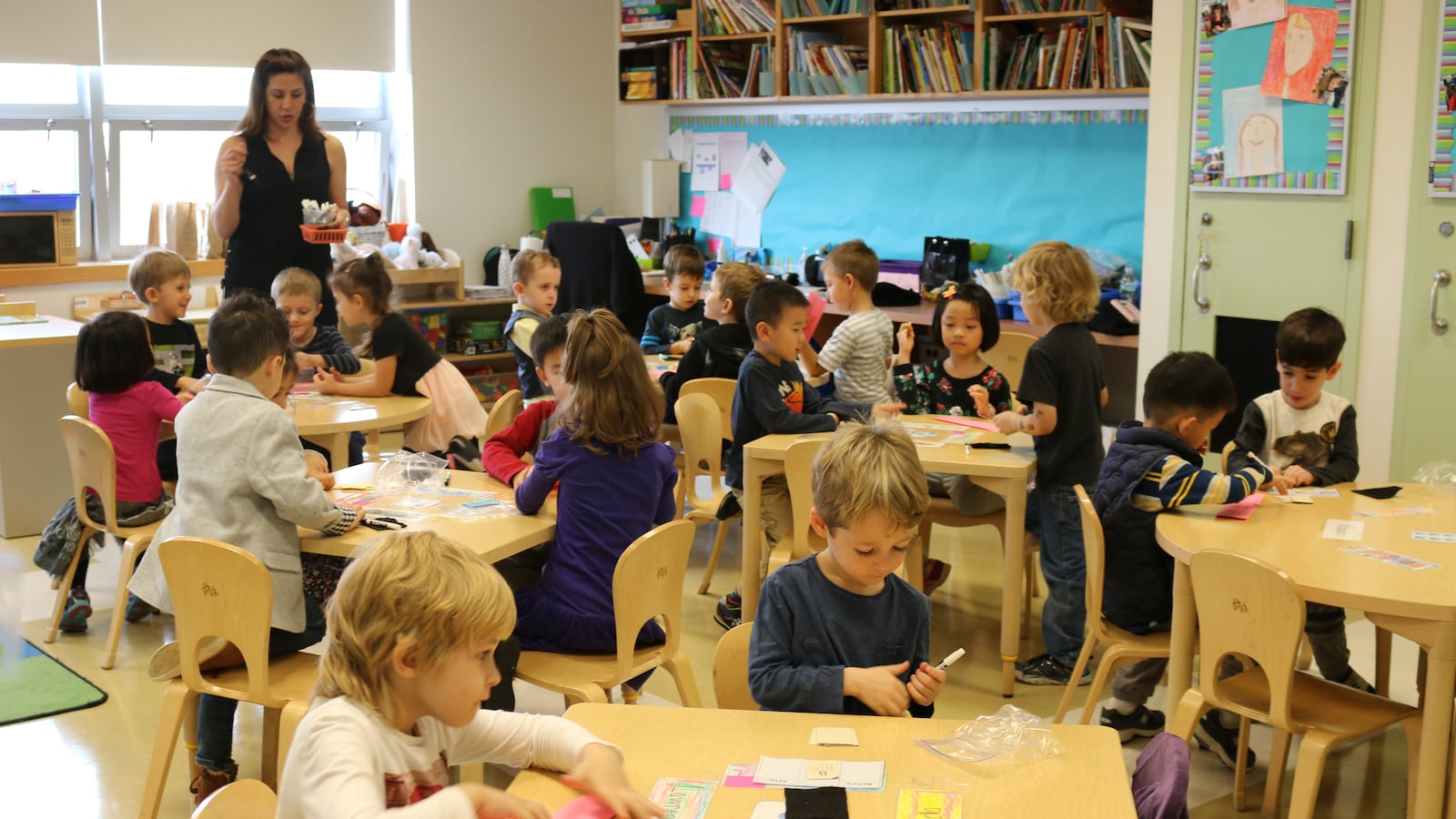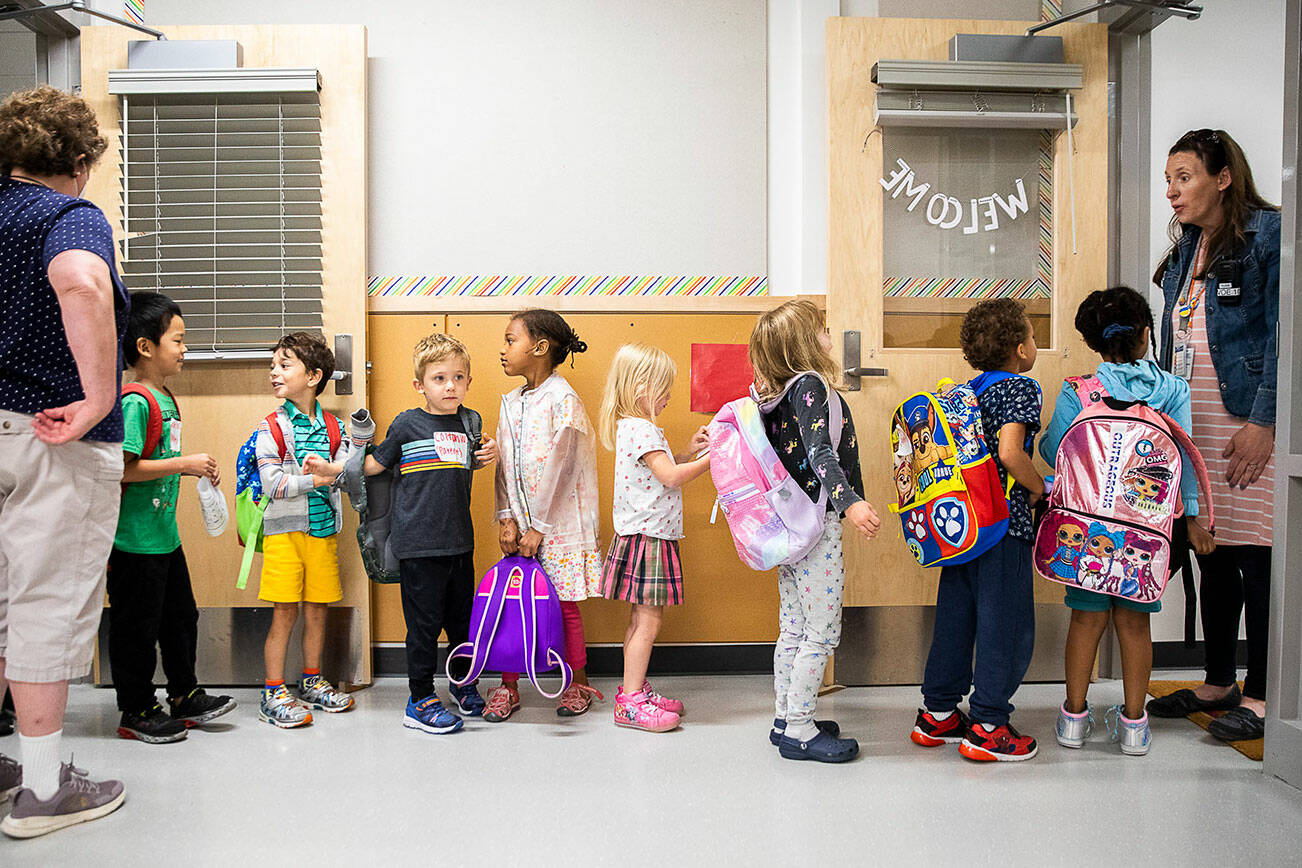Fun Kindergarten activities that encourage creativity and exploration
Wiki Article
The Relevance of Interactive Activities in Elementary School Education And Learning
Interactive activities play a crucial function in grade college education and learning. They involve trainees and boost finding out results. Through group tasks and hands-on experiments, pupils experience the product in a sensible way. This method accommodates varied understanding styles and promotes essential skills. The benefits extend beyond academics. Exploring the deeper influence of these activities exposes their relevance in forming young students' futures. What transformations take place when students actively participate?Enhancing Engagement Via Interactive Learning
Conventional teaching methods have their qualities, interactive understanding considerably boosts pupil involvement in grade school education. This approach motivates active participation, enabling students to immerse themselves in the knowing process. By making use of team activities, hands-on experiments, and technology-driven resources, instructors produce a setting where pupils really feel more attached to the product.Interactive discovering assists in partnership amongst peers, fostering interaction skills and team effort. It also accommodates diverse learning designs, making sure that visual, acoustic, and kinesthetic learners can all grow. Furthermore, students are more probable to maintain info when they proactively get involved, instead of passively receiving knowledge.
This vibrant technique not only makes discovering enjoyable however additionally infuses a feeling of possession in trainees concerning their instructional journey. As they engage with the content, their inquisitiveness and motivation to discover rise, laying a strong structure for future academic success.
Developing Crucial Assuming Skills
Interactive knowing not just improves engagement yet likewise serves as a stimulant for developing critical assuming skills in grade school pupils. Through tasks such as problem-based understanding, debates, and hands-on experiments, students are motivated to analyze info, evaluate different viewpoints, and create reasoned verdicts. These interactive experiences need pupils to question assumptions, leading them to believe even more deeply about various topics.
In addition, interactive activities frequently existing real-world scenarios that test pupils to apply their expertise artistically. By steering through these difficulties, they learn to recognize relevant information and make notified choices. This procedure cultivates not just individual important reasoning but additionally encourages trainees to verbalize their thought processes, enhancing their capacity to communicate effectively. Because of this, interactive knowing environments grow a generation of crucial thinkers who are much better prepared to take on complex issues in their future scholastic and specialist undertakings.
Promoting Cooperation Among Peers
Cultivating cooperation among peers is necessary in elementary school education and learning, as it improves team effort and communication abilities. Taking part in team activities assists trainees construct trust and respect for one an additional, laying the foundation for efficient cooperation. Analytical together enables trainees to find out from each various other and establish a cumulative strategy to difficulties.Team Effort and Communication Skills
Efficient synergy and interaction skills are crucial elements of a successful elementary school education and learning. Taking part in interactive tasks encourages pupils to collaborate, share ideas, and resolve problems with each other. Such experiences advertise the growth of critical interaction capacities, enabling youngsters to share their thoughts plainly and pay attention actively to others. Through team effort, trainees find out to value varied viewpoints, cultivating a feeling of community and shared responsibility. Structured group tasks, whether in academics or creative projects, boost peer interactions, teaching children exactly how to bargain roles and fix conflicts. These abilities not only contribute to a positive classroom environment yet additionally prepare students for future collaborative undertakings in higher education and learning and the work environment. In general, team effort and communication are fundamental to holistic growth in elementary school.Structure Depend On and Regard
Building depend on and regard amongst peers functions as a keystone for successful cooperation in quality school environments. When trainees feel valued and valued by their schoolmates, they are most likely to engage actively in group tasks. Interactive tasks, such as team projects and participating video games, provide opportunities for pupils to gain from one another, promoting a sense of area. This atmosphere encourages open communication, allowing trainees to share their ideas and point of views without anxiety of judgment. As count on builds, pupils become much more going to share responsibilities and sustain each various other's understanding. Inevitably, growing an ambience of count on and respect boosts not only academic outcomes but also social development, outfitting students with crucial social abilities for their future endeavors.Problem-Solving With each other
Joint analytic engages students in essential thinking and team effort, vital skills for their academic and individual growth. When students collaborate to deal with difficulties, they find out to connect successfully, respect diverse viewpoints, and leverage each various other's staminas. This procedure enhances their capacity to analyze issues from numerous angles and create innovative solutions. Group activities, such as science experiments or math challenges, promote active participation and promote a feeling of community. As trainees work together, they additionally construct social abilities, finding out to work out and compromise, which are crucial for future communications. Inevitably, problem-solving together cultivates a supportive learning setting, equipping pupils to take possession of their education and learning while preparing them for collective undertakings beyond the class.Urging Creative Thinking and Innovation
Urging creativity and innovation in elementary school education can be greatly enhanced via hands-on understanding experiences. These tasks enable trainees to involve directly with products and concepts, cultivating imaginative reasoning. In addition, collective group projects can promote diverse ideas and solutions, better nurturing an imaginative environment.Hands-On Learning Experiences
A wide range of hands-on understanding experiences substantially improves creativity and technology in quality institution education and learning. Involving students in sensible activities allows them to use theoretical knowledge in real-world contexts, promoting much deeper understanding. By manipulating devices and materials, youngsters develop critical problem-solving abilities and find out to assume outside package. These experiences motivate curiosity and inspire students to explore their interests better. Furthermore, hands-on tasks can bridge numerous topics, linking scientific research, art, and math in meaningful methods. This interdisciplinary approach motivates pupils to see links and believe artistically. Inevitably, hands-on learning experiences nurture a generation of pioneers, furnishing them with the abilities and self-confidence needed to tackle future difficulties and add to culture in one-of-a-kind ways.Collaborative Team Projects
Hands-on understanding experiences normally result in the incorporation of collective group jobs, which play an essential function in cultivating creative thinking and development in elementary school education. These projects encourage pupils to interact, sharing viewpoints and concepts, which improves problem-solving abilities and important reasoning. Via cooperation, pupils find out to communicate effectively and regard varied perspectives, necessary abilities for their future. Furthermore, team jobs supply opportunities for pupils to trying out various functions, enhancing their versatility and confidence. Taking part in this cooperative environment permits them to discover their imagination, pressing the limits of standard knowing. Ultimately, collaborative group jobs not only improve the academic experience yet additionally prepare trainees for real-world obstacles that require synergy and cutting-edge thinking.Building Self-confidence and Self-reliance
As pupils participate in interactive tasks, they frequently discover possibilities to develop confidence and freedom. These activities, whether they involve hands-on projects, role-playing, or problem-solving tasks, urge trainees to take initiative and express their ideas openly. By getting involved in such experiences, trainees find out to trust their abilities and choose without depending only on support from teachers or peers.Interactive activities foster a sense of possession over learning. When trainees tackle difficulties collaboratively or individually, they establish important thinking skills and strength. This process not only improves their understanding of the subject issue however additionally empowers them to take dangers in their learning journey.
As they navigate numerous interactive scenarios, students gradually shed their insecurity, leading the way for increased self-confidence - Kindergarten. Ultimately, these activities play an essential function in supporting certain and independent students, outfitted to deal with future academic and personal obstacles
Creating a Positive Class Setting
While promoting a favorable classroom atmosphere is essential for efficient knowing, it requires intentional initiative from teachers to create a space where students really feel secure, respected, and engaged. A favorable ambience urges collaboration, allowing pupils to express themselves without fear of judgment.Educators can attain this by establishing clear assumptions, advertising common respect, and recognizing private contributions. Incorporating interactive activities further enhances interaction, making discovering more vibrant and delightful.
Furthermore, a caring atmosphere supports social-emotional development, as pupils discover to browse partnerships and settle conflicts. Educators play a crucial role in modeling favorable habits and enhancing a society of compassion and inclusivity.
Often Asked Inquiries

How Can Moms And Dads Support Interactive Understanding in the house?
Parents can sustain interactive learning at home by giving appealing products, urging hands-on projects, incorporating instructional games, cultivating discussions, and creating a nurturing environment that advertises inquisitiveness and expedition in their kids's learning experiences. (Private School)What Sorts Of Interactive Activities Are Most Reliable?
Hands-on tasks, collective games, role-playing situations, and academic technology applications are among the most effective interactive tasks. These engage students, boost essential believing skills, and advertise team effort, ultimately cultivating a deeper understanding of different subjects.Exactly How Do Interactive Tasks Provide to Various Knowing Styles?
Interactive tasks engage visual, auditory, and kinesthetic learners by including diverse techniques. These tasks help with understanding with hands-on experiences, collaborative conversations, and visual help, permitting students to soak up information according to their favored discovering style.What Are the Prices Connected With Applying Interactive Activities?

Applying interactive tasks incurs expenses such as materials, training for teachers, innovation upgrades, and prospective center modifications. Budget plan restraints can likewise influence the frequency and selection of activities offered to students in educational settings.
Just How Can Teachers Assess the Impact of Interactive Knowing?
Teachers can examine the influence of interactive discovering via observations, trainee responses, performance metrics, and relative analysis of test scores prior to and after execution, making certain a comprehensive understanding of interaction and understanding retention renovations.Through activities such as problem-based learning, disputes, and hands-on experiments, pupils are encouraged to assess info, review various perspectives, and develop reasoned verdicts. Interactive tasks often present real-world circumstances that Private School test students to apply their knowledge artistically. Engaging in interactive tasks motivates pupils to work together, share ideas, and address issues together. Interactive activities, such as team projects and cooperative games, offer possibilities for pupils to learn from one another, promoting a sense of area. As pupils involve in interactive tasks, they frequently uncover possibilities to construct confidence and independence.
Report this wiki page